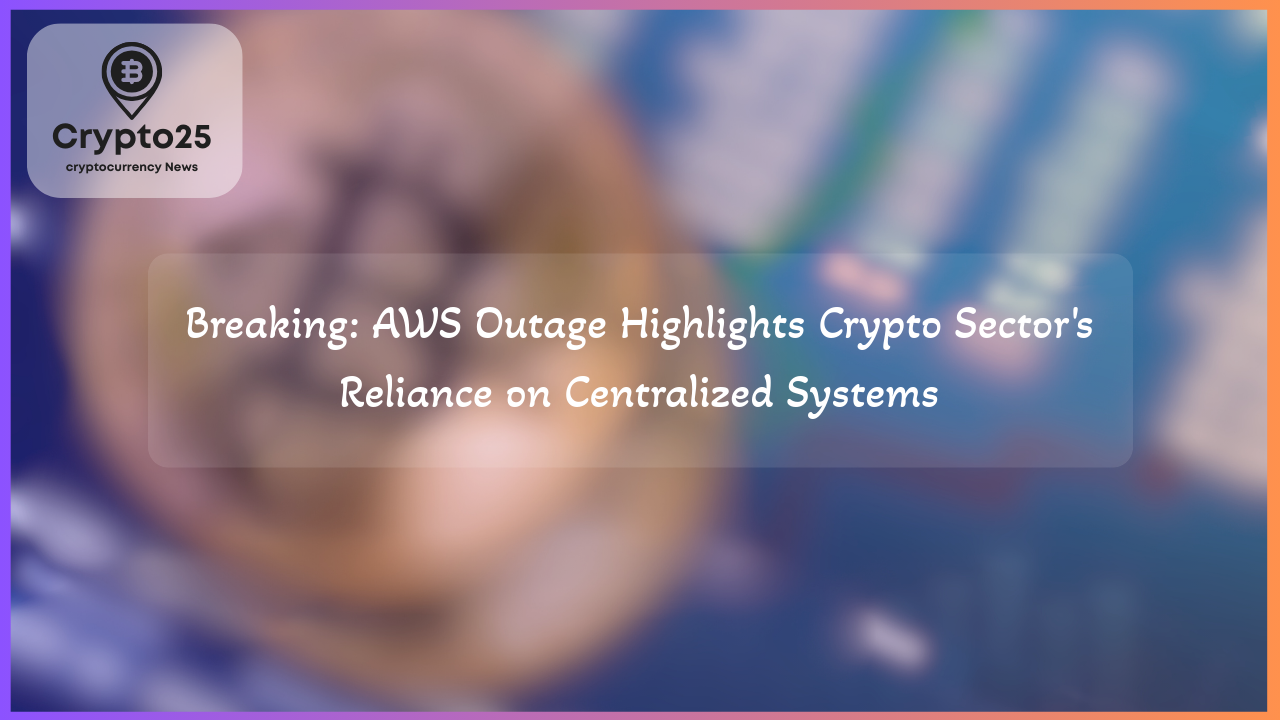
The crypto world faced significant disruption on April 15 when an Amazon Web Services (AWS) outage triggered connectivity issues for several major platforms. The temporary downtime underscored the risks of relying on centralized infrastructure, reigniting discussions about the need for decentralization to ensure greater resilience. This incident not only affected crypto exchanges like Binance but also extended to wallet providers and analytics services worldwide.
## AWS Crypto Outage Highlights Dependence on Centralized Systems
As the leading cloud provider, AWS plays a pivotal role in the backbone of countless crypto platforms. However, the outage on April 15 brought these platforms to a standstill, causing withdrawal suspensions, delayed processing, and connectivity issues. Binance, the largest crypto exchange by volume, was among the hardest hit, temporarily halting withdrawals to safeguard user transactions. The exchange revealed that failed transaction orders were directly tied to AWS disruptions. Less than an hour later, Binance reported notable recovery progress, resuming withdrawals, albeit with some delays still anticipated during full restoration.
Other prominent crypto platforms also reported operational interruptions, including KuCoin, Rabby wallet, and analytics firm DeBank. Despite service disruptions, KuCoin assured its users that their funds and data remained uncompromised. This reliance on a centralized infrastructure provider like AWS reveals a contradiction within the crypto space, where decentralization is a core principle. Such incidents amplify talks of creating decentralized alternatives to mitigate risks of centralized bottlenecks.
## What Caused the AWS Outage?
The AWS outage, which ran from 12:40 A.M. to 1:43 A.M. PDT, stemmed from power interruptions affecting both primary and backup systems. This failure disrupted 15 AWS services, notably including EC2 instances tied to specific zones. Users experienced delayed responses and connection failures during the downtime. While Amazon quickly restored most affected services, issues persisted for its relational database service for a longer period. AWS released a statement confirming the resolution and assured customers of improved measures to prevent repetitive incidents in the future.
AWS is a dominant force in cloud infrastructure, powering everything from websites to mission-critical applications for global industries. However, incidents like this remind us of the inherent vulnerabilities in relying on centralized service providers. For the crypto sector, which champions decentralization as its foundational ethos, this scenario serves as a wake-up call.
| Title | Details |
|---|---|
| Market Cap | $1.2 Trillion |
## Decentralized Alternatives: The Future of Crypto Infrastructure?
The AWS incident has reignited debates about building decentralized backend systems to prevent such failures. Voices from within the crypto industry, including Auki Network co-founder Santeri Aramo, responded with calls to action. Aramo highlighted that centralized dependencies introduce single points of failure, undermining decentralization’s mission. “Own your keys. Own your future,” he stated, emphasizing the disruptive potential of decentralized infrastructure.
Many blockchain developers and industry advocates are already exploring decentralized cloud services as an alternative. Projects like Filecoin and Storj are examples of blockchain-based platforms designed to offer greater redundancy, security, and resilience without relying on centralized providers. These decentralized competitors aim to disrupt traditional models, laying the foundation for an ecosystem aligned with crypto’s values.
For the crypto sector, transitioning to decentralized infrastructure isn’t just about mitigating operational risks; it aligns with the broader goal of autonomy, security, and fairness. While centralized systems like AWS are efficient, incidents like this illustrate that the industry’s reliance on them could conflict with the decentralized vision that drives blockchain technology.
The AWS outage may have been resolved promptly, but its implications will likely serve as a catalyst for change. As the crypto industry continues to grow, its infrastructure needs to adapt, ensuring that principles of security, resilience, and decentralization are reflected at every level. The journey toward truly decentralized infrastructure may be challenging, but it is a step necessary for the evolution of the blockchain space.
